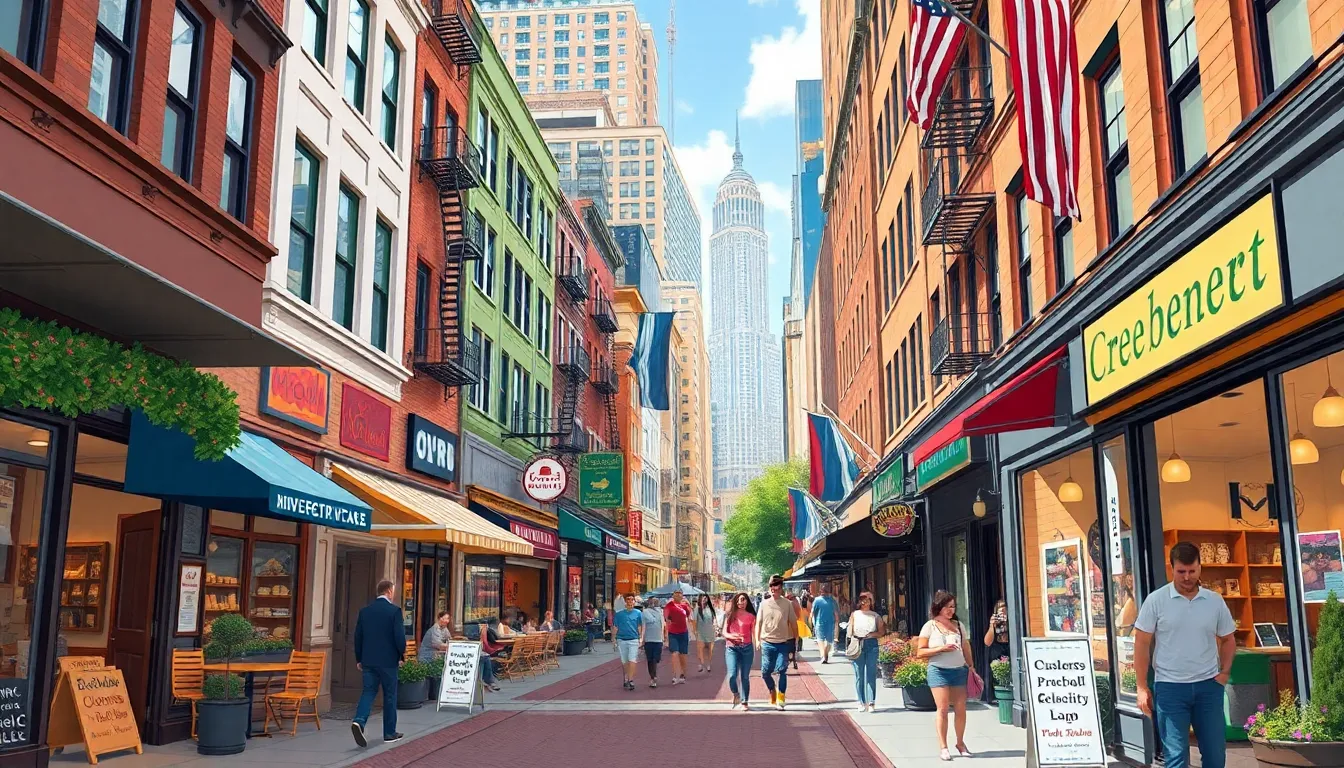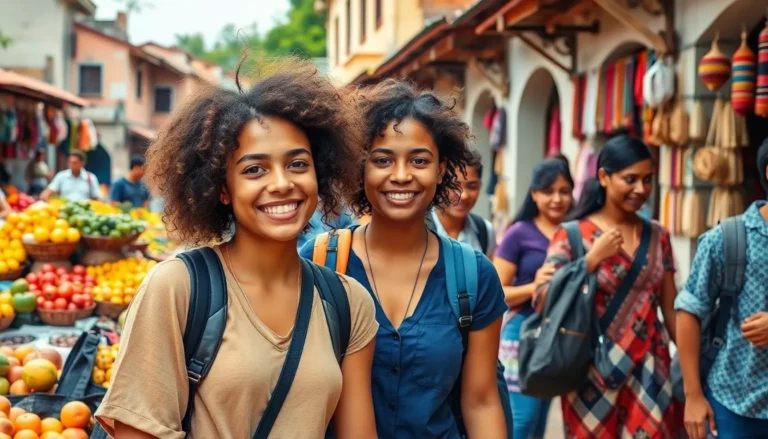Table of Contents
ToggleTourism isn’t just about snapping selfies in front of famous landmarks or indulging in exotic cuisines. It’s a vibrant tapestry woven from the threads of adventure, culture, and yes, a little bit of chaos. Imagine a world where your passport becomes a ticket to new experiences, where every trip writes a story, and where the only baggage you carry is your sense of humor.
Understanding Tourism
Tourism encompasses various activities that involve traveling for leisure, exploration, or culture. It includes not just sightseeing but also the unique stories and experiences that travelers create along the way.
Definition of Tourism
Tourism refers to the act of traveling to destinations away from home for enjoyment or leisure. It involves various activities, including visiting attractions, dining, and engaging with local cultures. Travelers may seek scenic landscapes, historical sites, or new culinary delights. According to the World Tourism Organization, tourism includes day trips and overnight stays that attract millions of people globally. In essence, tourism captures the spirit of adventure, curiosity, and learning through exploration.
Importance of Tourism
Tourism significantly contributes to global economies by generating jobs and creating revenue. It supports local businesses, including hotels, restaurants, and attractions, providing countless employment opportunities. This sector fosters cultural exchange, enhancing understanding among different communities. Moreover, it contributes to infrastructure development, such as transportation and public services, impacting local quality of life. In 2019, international tourist arrivals reached 1.5 billion, showcasing the sector’s immense scale and potential influence on economies worldwide.
Types of Tourism


Tourism encompasses various forms, each offering unique experiences and opportunities. Understanding the different types can enhance the travel experience.
Domestic Tourism
Domestic tourism refers to travel within a person’s own country. Travelers explore local attractions, cuisine, and cultural activities. It fosters connection among residents and generates economic benefits for local businesses. In 2019, domestic tourism accounted for 70 percent of total tourism expenditures in the United States. Individuals enjoy familiar environments while discovering hidden gems within their own regions.
International Tourism
International tourism involves traveling to foreign countries. Tourists experience diverse cultures, customs, and landscapes different from their own. In 2019, international tourist arrivals reached 1.5 billion globally, showcasing the importance of this sector. Visitors engage in a variety of activities, from leisure to business, resulting in significant revenue for destinations. Traveling abroad allows individuals to broaden their perspectives and gain a deeper understanding of global cultures.
Factors Influencing Tourism
Tourism’s development hinges on various interconnected factors. Economic and social influences play vital roles in shaping travel behavior and preferences.
Economic Factors
Economic trends directly affect tourism patterns. Strong economies encourage spending, promoting travel among residents and international visitors. For example, in 2019, domestic tourism expenditures in the U.S. reached 70 percent of total tourist spending, indicating domestic travelers’ significant impact. Currency exchange rates also influence international travel; favorable rates can attract more visitors to a destination. Additionally, economic stability contributes to infrastructure development, improving accessibility and amenities for tourists. Investing in tourism-related facilities enhances the experience and supports local economies.
Social and Cultural Factors
Social dynamics shape the tourism experience and destination popularity. Cultural events and festivals often attract tourists seeking authentic experiences. Explorers are drawn to diverse cultures, enhancing understanding and appreciation of different lifestyles. Local traditions, cuisine, and art forms entice travelers to immerse themselves in the destination’s unique identity. Moreover, the rise of social media influences travel trends; travelers share experiences online, impacting destination choices for others. The interplay of these social and cultural elements fosters connections between tourists and local communities, enriching the overall travel experience.
Benefits of Tourism
Tourism presents numerous benefits to global communities and economies. It fosters economic growth through increased spending and job creation.
Economic Growth
Tourism significantly contributes to economic growth. In 2019, tourism expenditures in the U.S. accounted for 70 percent of domestic tourism spending. That vast amount supports local businesses and creates jobs across various sectors. The hospitality industry thrives with hotels, restaurants, and attractions benefiting directly from visitors. Increased tourist activity encourages infrastructure investment, enhancing transportation and facilities, which make destinations more appealing. Economies strengthen not just from direct contributions, as tourism spurs job creation in diverse fields like retail and services, impacting livelihoods positively.
Cultural Exchange
Cultural exchange flourishes through tourism. Travelers immerse themselves in local customs, traditions, and festivals, building global awareness and mutual respect. Visitors share their own cultures, creating a rich tapestry of experiences that enhance understanding between communities. Engaging with locals during cultural activities fosters connections, allowing for unique interactions that deepen appreciation of diverse lifestyles. As people explore different regions, they bring home memories and knowledge that can influence their own cultures positively. International tourism opens doors for greater empathy and collaboration among nations.
Tourism represents a vibrant tapestry of experiences that enrich lives and foster connections. It’s not just about visiting new places but also about engaging with diverse cultures and creating lasting memories. This sector plays a pivotal role in shaping economies and communities, driving growth and development while promoting cultural exchange.
As travelers explore the world, they contribute to local economies and support businesses, enhancing the quality of life for residents. The impact of tourism extends beyond mere numbers; it cultivates understanding and respect among different cultures. Embracing the essence of tourism opens doors to adventure, learning, and shared experiences that resonate far beyond the trip itself.




